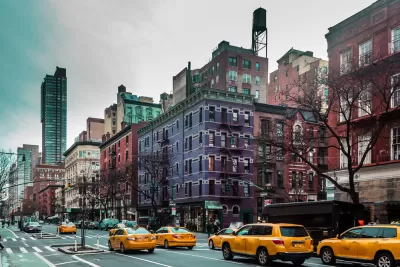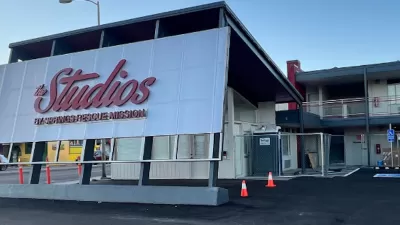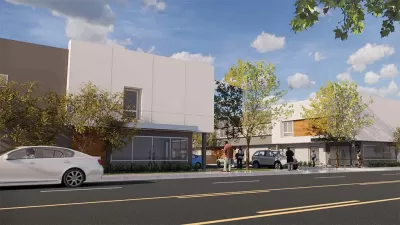The much-vaunted pledge to turn vacant hotel rooms into supportive housing units has failed to materialize as hoteliers see tourism rebound and developers find regulations too onerous and expensive.

New York City’s hotel conversion program continues to yield zero results, more than a year after Mayor Eric Adams promised to create 25,000 new affordable housing units in the city’s vacant hotels. According to an article by Janaki Chadha in Politico, the program has languished in part due to influence from the Hotel Trades Council union.
Despite pledging $200 million to the Housing Our Neighbors with Dignity act, the state and city have failed to gain interest from developers wary of complicated zoning and building codes, Chadha reports. The conversion of smaller hotels to supportive housing can be prohibitively expensive, and less expensive properties may be too far from public transit and other key amenities.
Meanwhile, the union and its supporters argue that keeping hotels open creates economic development and important local jobs. According to Seth Pinsky, former head of the city’s Economic Development Corporation under Mayor Mike Bloomberg, “I do think that eventually, we’re going to have the need again for those hotel rooms. And hotel rooms not only attract visitors, which generates economic activity, but hotels tend to employ people who, in many cases, are otherwise difficult to employ.”
After dropping to 39.1 percent in September 2020, hotel occupancy in the city shot back up to 81.2 percent in the week ending September 3, 2022, signaling a strong return of the tourism sector. “As travelers once again fill the city’s inns, owners are less desperate to offload their properties — particularly for sums that affordable and supportive housing developers can match.”
FULL STORY: Success eludes New York's plan to convert hotels into affordable housing

Trump Administration Could Effectively End Housing Voucher Program
Federal officials are eyeing major cuts to the Section 8 program that helps millions of low-income households pay rent.

Planetizen Federal Action Tracker
A weekly monitor of how Trump’s orders and actions are impacting planners and planning in America.

Ken Jennings Launches Transit Web Series
The Jeopardy champ wants you to ride public transit.

Rebuilding Smarter: How LA County Is Guiding Fire-Ravaged Communities Toward Resilience
Los Angeles County is leading a coordinated effort to help fire-impacted communities rebuild with resilience by providing recovery resources, promoting fire-wise design, and aligning reconstruction with broader sustainability and climate goals.

When Borders Blur: Regional Collaboration in Action
As regional challenges outgrow city boundaries, “When Borders Blur” explores how cross-jurisdictional collaboration can drive smarter, more resilient urban planning, sharing real-world lessons from thriving partnerships across North America.

Philadelphia Is Expanding its Network of Roundabouts
Roundabouts are widely shown to decrease traffic speed, reduce congestion, and improve efficiency.
Urban Design for Planners 1: Software Tools
This six-course series explores essential urban design concepts using open source software and equips planners with the tools they need to participate fully in the urban design process.
Planning for Universal Design
Learn the tools for implementing Universal Design in planning regulations.
Ada County Highway District
Clanton & Associates, Inc.
Jessamine County Fiscal Court
Institute for Housing and Urban Development Studies (IHS)
City of Grandview
Harvard GSD Executive Education
Toledo-Lucas County Plan Commissions
Salt Lake City
NYU Wagner Graduate School of Public Service





























